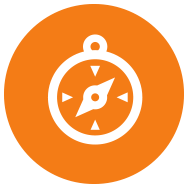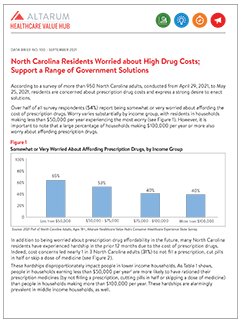North Carolina Residents Worried about High Drug Costs; Support a Range of Government Solutions
According to a survey of more than 950 North Carolina adults, conducted from April 29, 2021 to May 25, 2021, residents are concerned about prescription drug costs and express a strong desire to enact solutions.
Over half of all survey respondents (54%) report being somewhat or very worried about affording the cost of prescription drugs. Worry varies substantially by income group, with residents in households making less than $50,000 per year experiencing the most worry (see Figure 1). However, it is important to note that a large percentage of households making $100,000 per year or more also worry about affording prescription drugs.
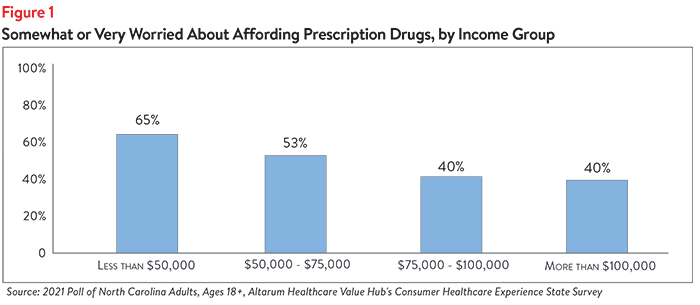
In addition to being worried about prescription drug affordability in the future, many North Carolina residents have experienced hardship in the prior 12 months due to the cost of prescription drugs. Indeed, cost concerns led nearly 1 in 3 North Carolina adults (31%) to not fill a prescription, cut pills in half or skip a dose of medicine (see Figure 2).
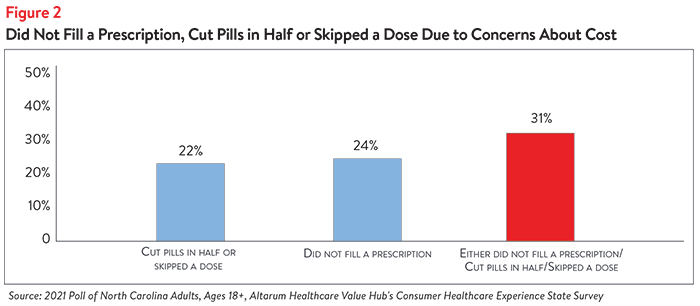
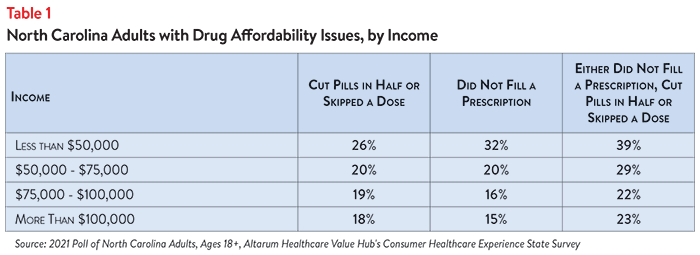
These hardships disproportionately impact people in lower income households. As Table 1 shows, people in households earning less than $50,000 per year1 are more likely to have rationed their prescription medicines (by not filling a prescription, cutting pills in half or skipping a dose of medicine) than people in households making more than $100,000 per year. These hardships are alarmingly prevalent in middle income households, as well.
In light of these prescription drug cost concerns—as well as concerns about high healthcare costs generally2—it is not surprising that North Carolina adults are generally dissatisfied with the health system:
- Just 30% agreed or strongly agreed that “we have a great healthcare system in the U.S.,”
- While 66% agreed or strongly agreed that “the system needs to change.”
When given more than 20 options, those cited most frequently as being a “major reason” for high healthcare costs were:
- 63%—Drug companies charging too much money
- 63%—Hospitals charging too much money
- 60%—Insurance companies charging too much money
When it comes to tackling high drug costs, North Carolina adults endorsed a number of strategies:
- 87%—Ensure the cost of widely needed vaccines are affordable for all
- 86%—Require drug companies to provide advanced notice of price increases and information to justify those increases
- 86%—Authorize the Attorney General to take legal action to prevent price gouging or unfair prescription drug price hikes
- 85%—Set standard prices for drugs to make them affordable
- 84%—Prohibit drug companies from charging more in the U.S. than abroad
- 81%—Create a Prescription Drug Affordability Board to examine the evidence and establish acceptable costs for drugs
Moreover, there is substantial support for government action on drug costs regardless of the respondents’ political affiliation (see Table 2).
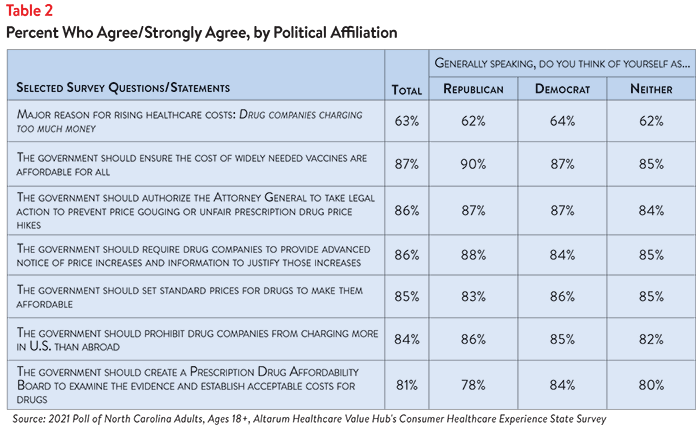
While North Carolina residents are united in calling for the government to address high drug costs, they also see a role for themselves:
- 73% would switch from a brand name to an equivalent generic drug if given a chance
- 62% have tried to find out the cost of a drug beforehand
Conclusion
The high burden of healthcare and prescription drug affordability, along with high levels of support for change, suggest that elected leaders and other stakeholders need to make addressing this consumer burden a top priority. Moreover, the current COVID crisis is leading state residents to take a hard look at how well health and public health systems are working for them, with strong support for a wide variety of actions. Annual surveys can help assess whether or not progress is being made.
Notes
1. Median household income in North Carolina was $54,602 (2015-2019). U.S. Census, Quick Facts. Retrieved from: U.S. Census Bureau QuickFacts: North Carolina
2. For more detailed information about healthcare affordability burdens facing North Carolina residents, please see Healthcare Value Hub, North Carolina Residents Struggle to Afford High Healthcare Costs; COVID Fears Add to Support for a Range of Government Solutions Across Party Lines, Data Brief No. 99.

